第162章 CHAPTER L MIRIAM, HILDA, KENYON, DONATELLO(3)
So Kenyon won the gentle Hilda's shy affection, and her consent to be his bride. Another hand must henceforth trim the lamp before the Virgin's shrine; for Hilda was coming down from her old tower, to be herself enshrined and worshipped as a household saint, in the light of her husband's fireside. And, now that life had so much human promise in it, they resolved to go back to their own land; because the years, after all, have a kind of emptiness, when we spend too many of them on a foreign shore. We defer the reality of life, in such cases, until a future moment, when we shall again breathe our native air; but, by and by, there are no future moments; or, if we do return, we find that the native air has lost its invigorating quality, and that life has shifted its reality to the spot where we have deemed ourselves only temporary residents. Thus, between two countries, we have none at all, or only that little space of either in which we finally lay down our discontented bones. It is wise, therefore, to come back betimes, or never.
Before they quitted Rome, a bridal gift was laid on Hilda's table. It was a bracelet, evidently of great cost, being composed of seven ancient Etruscan gems, dug out of seven sepulchres, and each one of them the signet of some princely personage, who had lived an immemorial time ago. Hilda remembered this precious ornament. It had been Miriam's; and once, with the exuberance of fancy that distinguished her, she had amused herself with telling a mythical and magic legend for each gem, comprising the imaginary adventures and catastrophe of its former wearer. Thus the Etruscan bracelet became the connecting bond of a series of seven wondrous tales, all of which, as they were dug out of seven sepulchres, were characterized by a sevenfold sepulchral gloom; such as Miriam's imagination, shadowed by her own misfortunes, was wont to fling over its most sportive flights.
And now, happy as Hilda was, the bracelet brought the tears into her eyes, as being, in its entire circle, the symbol of as sad a mystery as any that Miriam had attached to the separate gems. For, what was Miriam's life to be? And where was Donatello? But Hilda had a hopeful soul, and saw sunlight on the mountain-tops.
CONCLUSION
There comes to the author, from many readers of the foregoing pages, a demand for further elucidations respecting the mysteries of the story.
He reluctantly avails himself of the opportunity afforded by a new edition, to explain such incidents and passages as may have been left too much in the dark; reluctantly, he repeats, because the necessity makes him sensible that he can have succeeded but imperfectly, at best, in throwing about this Romance the kind of atmosphere essential to the effect at which he aimed.
He designed the story and the characters to bear, of course, a certain relation to human nature and human life, but still to be so artfully and airily removed from our mundane sphere, that some laws and proprieties of their own should be implicitly and insensibly acknowledged.
The idea of the modern Faun, for example, loses all the poetry and beauty which the Author fancied in it, and becomes nothing better than a grotesque absurdity, if we bring it into the actual light of day.
He had hoped to mystify this anomalous creature between the Real and the Fantastic, in such a manner that the reader's sympathies might be excited to a certain pleasurable degree, without impelling him to ask how Cuvier would have classified poor Donatello, or to insist upon being told, in so many words, whether he had furry ears or no. As respects all who ask such questions, the book is, to that extent, a failure.
Nevertheless, the Author fortunately has it in his power to throw light upon several matters in which some of his readers appear to feel an interest. To confess the truth, he was himself troubled with a curiosity similar to that which he has just deprecated on the part of his readers, and once took occasion to cross-examine his friends, Hilda and the sculptor, and to pry into several dark recesses of the story, with which they had heretofore imperfectly acquainted him.
We three had climbed to the top of St. Peter's, and were looking down upon the Rome we were soon to leave, but which (having already sinned sufficiently in that way) it is not my purpose further to describe.
It occurred to me, that, being so remote in the upper air, my friends might safely utter here the secrets which it would be perilous even to whisper on lower earth.
"Hilda," I began, "can you tell me the contents of that mysterious packet which Miriam entrusted to your charge, and which was addressed to Signore Luca Barboni, at the Palazzo Cenci?""I never had any further knowledge of it," replied Hilda, "nor felt it right to let myself be curious upon the subject.""As to its precise contents," interposed Kenyon, "it is impossible to speak. But Miriam, isolated as she seemed, had family connections in Rome, one of whom, there is reason to believe, occupied a position in the papal government.